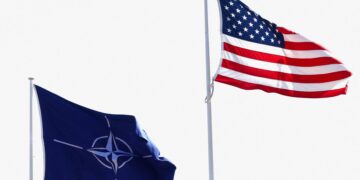TOKYO (Reuters) -U.S. President Donald Trump’s tariffs may have put an end to the Bank of Japan’s rate-hike cycle, with the chance of further interest rate increases fading fast due to the expected hit to exports, former BOJ policymaker Takako Masai said on Thursday.
Uncertainty over U.S. trade policy is causing huge disruptions in the global economy that will likely hit Japan’s exports, output, wage growth and consumption, said Masai, who retains close contact with incumbent policymakers.
U.S. automobile tariffs are particularly damaging due to the huge role the industry plays in Japan’s economy, Masai said.
“The real test to Japan’s economy could come in 2026,” as the impact of U.S. tariffs will begin to appear six to 12 months from now, she said.
“The BOJ probably won’t be able to raise interest rates for quite a long time,” she told Reuters in an interview.
Depending on how U.S. trade talks with other countries unfold, the BOJ may hold off raising rates this year and possibly through 2026, Masai said.
Analysts polled by Reuters expect the BOJ to put off another rate hike this year, with a slight majority expecting the next increase to come in early 2026.
During Masai’s five-year stint at the BOJ until 2021, the BOJ maintained a massive stimulus programme combining huge asset buying, negative interest rates and bond yield control to reflate growth and fire up inflation to its 2% target.
Under Governor Kazuo Ueda, the BOJ exited the programme last year and raised interest rates to 0.5% in January on the view Japan was on the cusp of durably hitting its inflation target.
Masai said Ueda’s decision to unwind the complex framework was appropriate, but warned against hiking rates prematurely when the economy is seen suffering from U.S. tariffs.
Rather, the BOJ may need to pledge keeping real interest rates low to support government and private-sector efforts to restructure Japan’s economy such as by boosting domestic demand and diversifying the type of goods it exports, she said.
“If the economy faces a severe shock and the BOJ is forced to act, it will probably deploy all available means again,” said Masai, who is currently chairperson at think tank SBI Financial and Economic Research Institute.
“That’s the nature of policymaking,” even if it means expanding the BOJ’s already huge balance sheet, she said.
Japan is struggling to reach a deal with Washington in tariff negotiations, clouding the outlook for its economy that is heavily reliant on automobile shipments to the U.S.
The uncertainty over U.S. trade policy forced the BOJ to cut its growth forecasts on May 1, suggesting the timing of its next rate hike may be delayed despite steadily rising inflation.
But persistent rises in food costs have kept core inflation above the BOJ’s 2% target for more than three years.
While Ueda has signaled a pause in rate hikes, he has stressed the BOJ’s readiness to stay on course for further increases in still-low borrowing costs.
Masai said the recent inflation was driven largely by rising fuel and raw material costs, which will likely moderate due to weakening global demand.
(Reporting by Leika Kihara; Editing by Kim Coghill)
By Leika Kihara
















